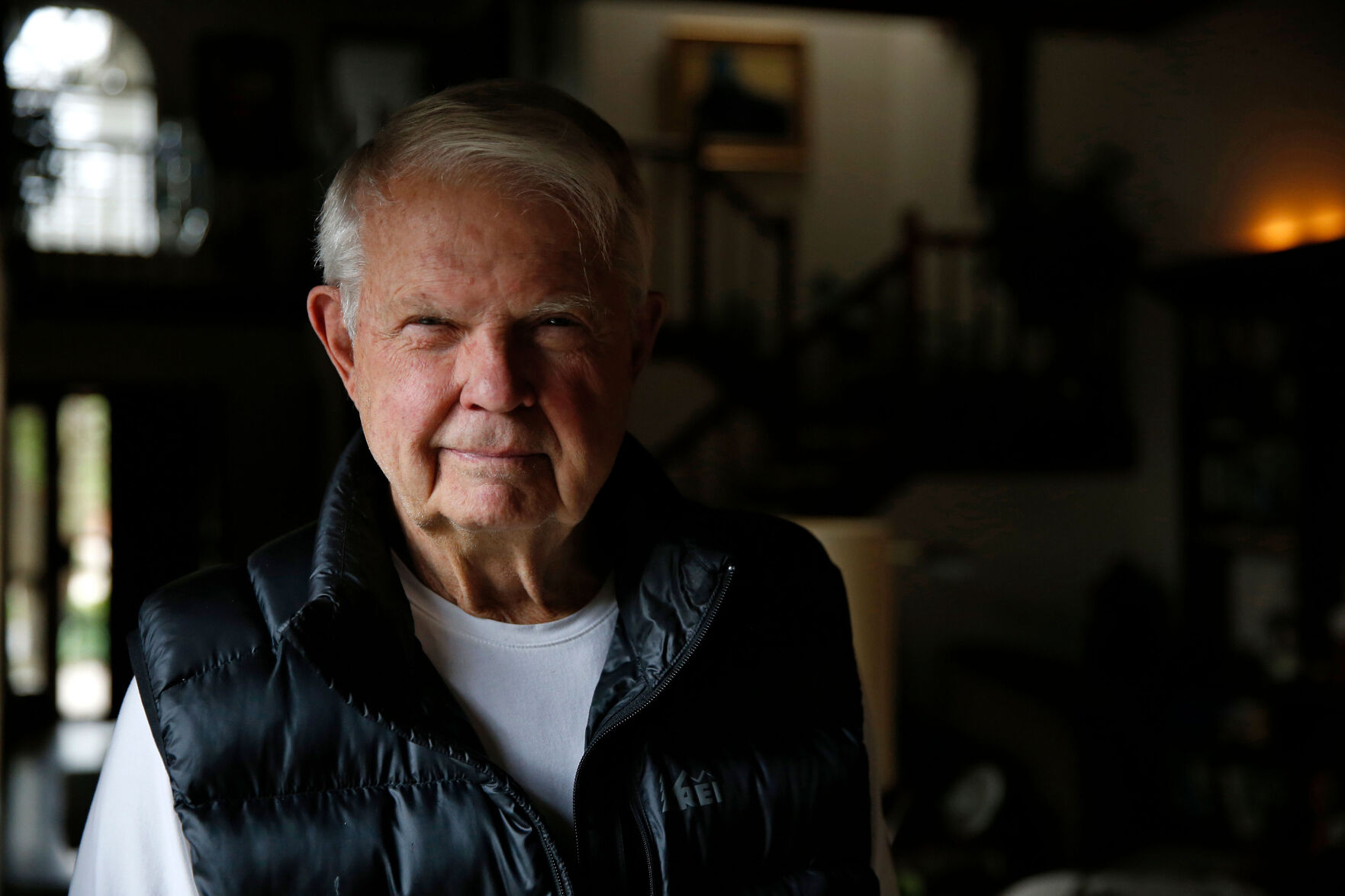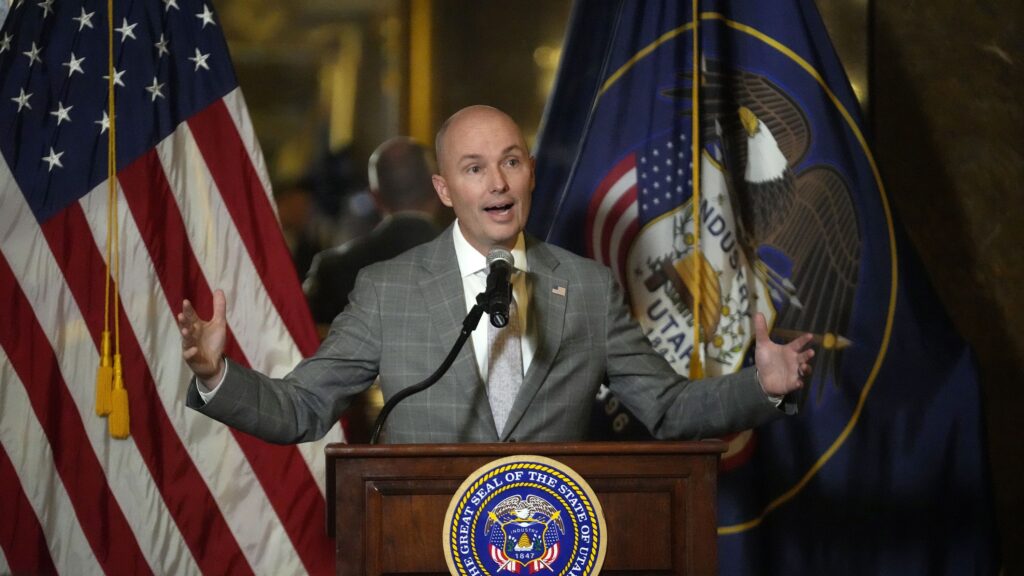SONDERMANN | Lamm ushered in a generation of movers

Politicians come and go. Some leave large footprints; others leave the ground barely touched.
As Colorado pays tribute this week to the life of former Gov. Dick Lamm, no one, friend or foe, will suggest that he did not live and govern large, and make a distinct mark on his beloved state.
A good deal will be said of his environmental record, his forthrightness and candor unknown in the current political age, his intellectual chops, his willingness to challenge his own thinking and change his mind, and his appeal across party lines in an era before unforgiving partisan polarity.
Others will talk of him as an avid outdoorsman whether going vigorously up a mountain or down a river. His family will make important note of him as a supportive spouse, a loving father and an ultra-devoted grandparent.
Amidst all of these deserved words, let me suggest one other profound imprint Lamm made on Colorado: He ushered in, mentored and gave wings to a remarkable generation of talent that magnified his impact many times over.
It was rather audacious to delegate so much responsibility to so many still early in their careers. A newspaper cartoon at the time showed a Lamm Cabinet meeting with highchairs around the table.
Some names will be left off this catalog of talent. They have my phone number and I suspect a few will let me know of the oversight. As the youngest of this young band that came of age during Lamm’s governorship, I learned from them as well.
It is an imposing list. John Lay went on to helm the Denver Chamber of Commerce and then the Southeast Business Partnership. Gail Klapper has been the longtime head of the influential Colorado Forum.
Activist Sam Brown was part of the crew that convinced Colorado to turn down the Winter Olympics. After two years as State Treasurer, he departed for Washington to serve as Jimmy Carter’s director of VISTA and the Peace Corps.
Buie Seawell‘s varied career included a stint as head of the Colorado Democratic Party and a distinguished tenure teaching business ethics at the University of Denver. Paula Herzmark led organizations from the Jewish Community Center to the Denver Health Foundation. Shunning retirement, she is now launching the Hart Center for Public Service at Metropolitan State University.
Lee White has been a civic leader in many realms, including a term on the Denver School Board. Steve Katich was the point person in bringing Major League Baseball to Denver and constructing Coors Field. Howard Gelt, gone prematurely, was described after his death as an “unsung force” behind various efforts from politics to transportation to the arts.
Also too soon deceased was the incomparable Sue O’Brien. After serving as Lamm’s press secretary, she managed Roy Romer’s campaign to succeed Lamm before directing the master’s program at CU’s journalism school and then running the Denver Post’s editorial page.
Speaking of Roy Romer, he had been relegated to political oblivion before Lamm brought him back to center stage, first as Commissioner of Agriculture and then as State Treasurer and the Governor’s chief of staff. I’d say that ended up working out rather well for him.
Gail Schoettler, another product of the Lamm years, came within a few thousand votes of being elected Governor in her own right following Romer. After that narrow loss, she grew into a mentor for innumerable other female candidates.
Federico Pena was not a part of Lamm’s crew although he served as a Democratic legislator during some of those years. But as Lamm had ridden a generational wave to the Governor’s office, Pena took much from that playbook in pulling off a similar feat to become Denver’s Mayor.
Oh, how we miss John Parr who played an indispensable role in electing both Lamm and Pena before leading the National Civic League and bringing a new manner of metropolitan cooperation to warring governmental entities around the Denver area.
Tom Nussbaum directed Pena’s campaign and served as his key advisor. David Miller, with whom I shared an unventilated vault in the Governor’s suite of offices, continued on to be Pena’s chief of staff before leading the Denver Foundation for almost 20 years. Not resting on those laurels, he more recently created the Barton Center for Community Action.
For years and years, little of consequence has happened among local governments up and down the Front Range without Maria Garcia Berry’s fine hand occupying a central role. Denise Brown turned the Colorado Bioscience Association into a serious venture.
Harris Sherman replicated his Lamm administration role running the Department of Natural Resources for Gov. Bill Ritter before taking on a key post in a similar realm under President Obama. Morgan Smith would lead Colorado‘s international trade program for over a decade after Lamm left the scene.
Now think of the all-star lineup that served Lamm as the governor’s legal counsel over the span of those 12 years. Mary Mullarkey would become the first female Chief Justice of the Colorado Supreme Court. David Greenberg, after founding a top consulting firm, became the visionary behind the Denver School of Science and Technology, now a high-performing charter behemoth.
In addition to being one of the nicest people in Denver, Jim Kurtz-Phelan, who lived in the Lamms’ basement while studying for the bar exam, has had his hands in many of Denver’s largest real estate transactions.
Mark Grueskin went on to be Colorado’s premier election attorney and occupy an outsized place in the heads of countless Republicans.
Which brings us to Wellington Webb who was already a legislator and federal official before being tapped by Lamm for a Cabinet post. His path from there speaks for itself.
Finally, in a category of her own is Lamm’s widow Dottie after a partnership of nearly 60 years. As Colorado’s First Lady and in all the years since, she would be a formidable force in her own right as a writer and prominent voice for women’s rights.
Generations arrive and eventually they wane. The cadre brought to the fore by Dick Lamm stands out for both the depth and breadth of its impact. That is a major part of his legacy, and one that is not yet finished.
Eric Sondermann is a Colorado-based independent political commentator. He writes regularly for ColoradoPolitics and the Denver Gazette. Reach him at?EWS@EricSondermann.com; follow him at @EricSondermann














